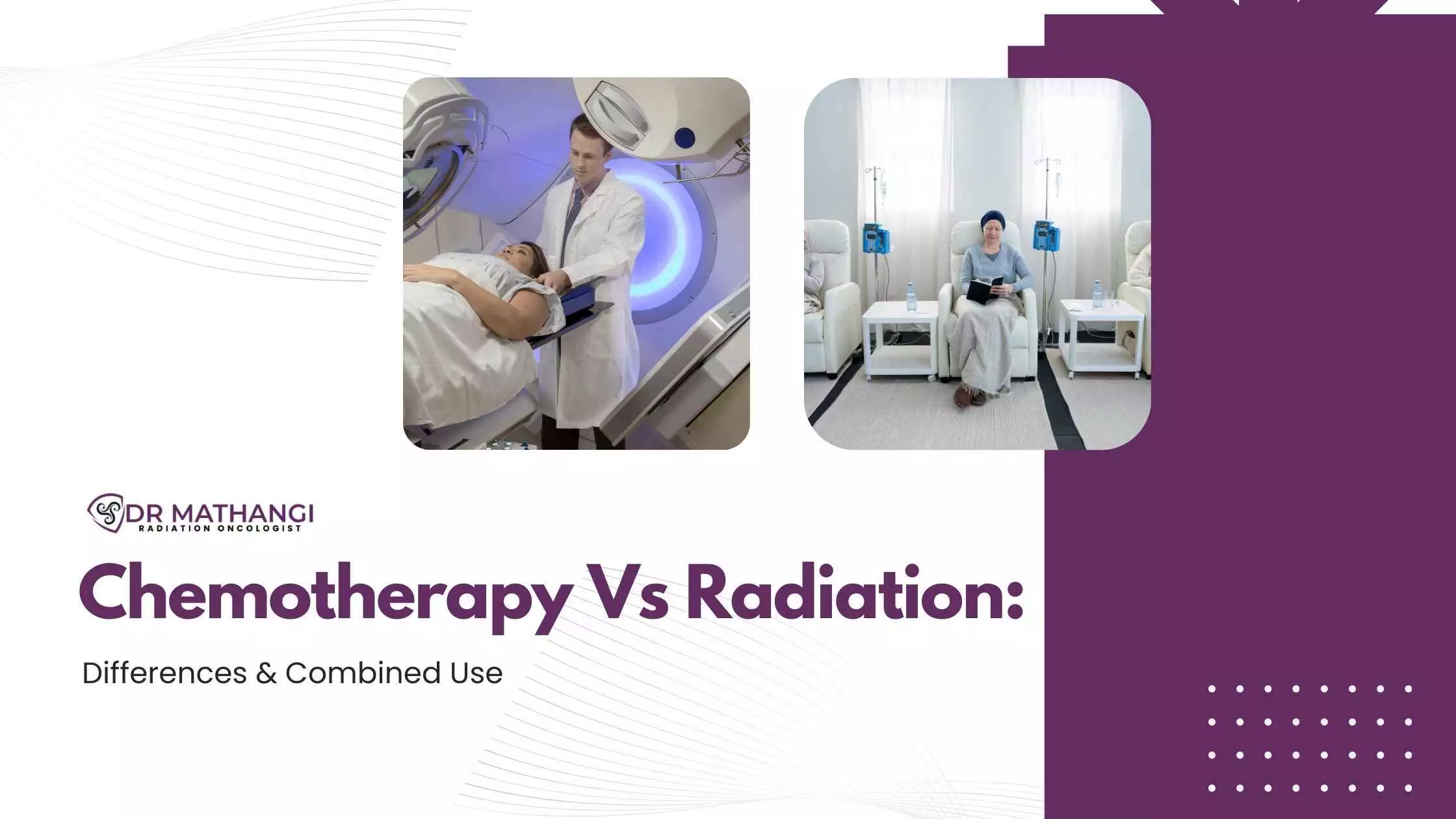
Over 50% of cancer patients receive radiation therapy at some point during their treatment, often in combination with chemotherapy. Understanding the what is difference between chemotherapy and radiation therapy is essential in choosing the best treatment strategy tailored to each patient's diagnosis and overall health.
Chemotherapy involves the use of potent drugs to kill cancer cells, typically administered intravenously or orally. It circulates throughout the entire body, making it a systemic vs. localized treatment approach. In contrast, radiation therapy, administered using advanced machines like the TrueBeam STx system at Gleneagles Cancer Institute, is a localized treatment aimed at destroying cancer cells in a specific part of the body.
Leading the Radiation Oncology division at Gleneagles Cancer Institute, Dr. Mathangi J brings over 15 years of dedicated experience and has treated more than 12,000 patients with precision and care. Trained internationally in cutting-edge radiation techniques such as SRS/SBRT and IORT, she has transformed cancer treatment with the installation of the first TrueBeam STx Machine in the Asia Pacific region.
Chemotherapy works by targeting rapidly dividing cells, which includes cancer cells but also affects healthy cells like those in the bone marrow, digestive tract, and hair follicles. This is why chemotherapy is known for more systemic side effects. On the other hand, radiation therapy damages the DNA of cancer cells within a confined area, which is why Dr. Mathangi’s use of Image-Guided Radiotherapy (IGRT) and Gated RapidArc techniques ensures precise targeting and preservation of surrounding healthy tissue.
The difference in side effects can significantly impact patient comfort and quality of life. Chemotherapy may cause fatigue, nausea, hair loss, and immune suppression. Radiation therapy, while more localized, can result in skin irritation, fatigue, and localized organ-specific effects. Dr. Mathangi customizes treatment plans to minimize these impacts using modern innovations such as DIBH gated radiotherapy for breast cancer and SBRT for lung tumors.
Chemoradiation refers to the simultaneous use of chemotherapy and radiation therapy. This combined approach is especially beneficial for cancers such as cervical, head and neck, and some rectal cancers. Dr. Mathangi uses her extensive experience in image-guided interstitial brachytherapy and systemic care to tailor these regimens for maximum tumor control with minimal toxicity.
Another approach is sequential therapy, where chemotherapy and radiation therapy are administered one after the other rather than at the same time. This strategy is often used based on tumor biology, stage, and individual patient response. Dr. Mathangi’s personalized care plans ensure that timing and dosing are optimized to enhance efficacy and reduce complications.
Certain cancers may require a systemic vs. localized treatment decision based on how far the disease has spread. For instance, leukemia often demands systemic chemotherapy, while early-stage prostate cancer may respond well to targeted radiation. Dr. Mathangi’s expertise across both paradigms ensures patients receive holistic and effective cancer care.
When your health is on the line, trust someone who not only understands the science but also leads the advancement of it. Dr. Mathangi J’s approach to cancer treatment goes beyond standard care—it integrates global expertise, advanced radiological infrastructure, and compassionate patient-focused care.
Still weighing your options? Remember, each moment matters in cancer care. Choosing the right treatment at the right time can make all the difference. Let Dr. Mathangi’s evidence-backed strategies and international proficiency guide you or your loved ones to a more hopeful outcome.
To schedule a personalized consultation with Dr. Mathangi, please submit your contact details using the contact form. Her team will promptly reach out to confirm the appointment and provide further instructions.
Let your cancer treatment journey begin with clarity, confidence, and care—choose the trusted expertise of Dr. Mathangi J at Gleneagles Cancer Institute.